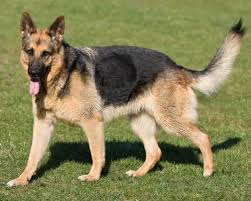Are dogs really smiling? Your dog isn’t smiling because they find something humorous. Instead, they’re smiling because they are calm and relaxed and, because of that, one could venture that your pet is happy. Similarly, some dogs will appear to smile if they are showing submission to their human counterparts.
What does it mean when a dog smiles? This “dog smile” usually occurs in situations when they are relaxed and appear happy, which is why dog owners think it is a smile. These “dog smiles” also often occur in response to a human smile, which is a phenomenon called laughter contagion. Dogs may appear to smile because we smile at them.
What dog is known as the smiling dog? Samoyeds‘ friendly and affable disposition makes them poor guard dogs; an aggressive Samoyed is rare. The breed is characterized by an alert and happy expression which has earned the nicknames “Sammie smile” and “smiley dog”.
Is a smiling dog a happy dog? Even aggressive baring of the teeth can be mistaken by some as a friendly greeting. However, most of the time when dogs smile, they are indeed happy, so it’s easy to relate that expression to human smiles.
Are dogs really smiling? – Additional Questions
Are smiling dogs stressed?
But really, you have to observe the dog’s entire facial and body language to determine if he’s in a good mood. If your dog’s mouth is upturned into what looks like a smile, it could actually mean that he is anxious or in distress, according to Kristina Lotz, a certified professional dog trainer.
Do dogs understand kisses?
Many dog owners talk to their dogs in a cute or gentle manner when they are kissing them. The dog then learns to associate the kisses with a warmer tone, meaning they might respond accordingly. So while dogs do not understand what kisses really mean, they can eventually learn to realize they are positive messages.
How can I tell if my dog is happy?
Relaxed or Wiggly Body and Tail
When a dog is happy, their whole body and tail will look relaxed, and they quite often wiggle! A happy dog’s whole body can wag along with their tail. A wriggling dog showing you their belly is likely to be a very happy and comfortable dog.
Why does my dog smile at me?
A. It sounds like your dog is displaying an appeasement gesture, called a submissive grin, to show you and others that she’s no threat. Submissive grins are a way for a dog to show deference to another individual.
How do dogs express happiness?
Happy dogs most often wag their tails, roll around on their backs, and display a strong interest in play. Dogs also use higher-pitched barks to express their joy. Some researchers even believe that dogs laugh by breathing heavily through their loose lips.
Why do dogs smile when guilty?
Submissive smiling is a dog’s way of saying, “I just met you, but I humbly respect you.” They use the submissive smile to communicate to other dogs and humans alike that they are not interested in fighting, they want to be friendly. It’s easy for people to mistake a submissive smile for an aggressive one.
Why should you not hug your dog?
A few people disagree, but despite how good it feels for humans to receive hugs, most experts agree with Coren’s analysis that dogs do not like to be hugged because the gesture immobilizes them, causing high levels of stress and anxiety that could lead to aggression or biting in extreme cases, or just a nervous and
Do dogs say sorry?
Dogs say sorry by expressing physical signs like the tail-between-the-legs pose, dropped ears, wide eyes, reduce panting, rubbing their face against the paw or wagging the tail. Usually, it’s the dog’s way to accept that they made a mistake and it is a submissione expression rather than saying sorry.
Do dogs have a favorite person?
Early-life bonding
As a result, dogs typically form strong, lifelong bonds with whoever feeds, plays, and generally cares for them most often during this critical time. In cases where the person they bonded with is no longer around, a dog may still show favoritism toward people that are similar to them.
How do you tell a dog you love them?
10 Ways To Show Love To Your Dog
- Ear rub. Your dog will naturally feel high with euphoria when you rub its ears.
- Have a daily playtime.
- Teach them new tricks.
- Have warm and hearty conversations.
- Take time to cuddle.
- Surprise your dog with a treat.
- Hang out together.
- Treat your pup with respect.
Where do dogs think we go?
For most dogs in a comfortable and secure environment, the bond with you is still there if you are gone, and the connection you share is as strong as ever. It’s just that you are not at the forefront of their thoughts if you are not present. So, your dog simply gets on with whatever they are doing at that moment.
Do dogs miss people?
But does your dog miss you back? Studies show that dogs form positive associations with their favorite people, and they don’t like being separated from you for long. Dogs can handle alone time, but they do miss you when you’re gone.
Do dogs think you leave forever?
Whether you’re going out for a day or just popping off to the toilet, it’s more likely than not that your dog will look at you like you’re leaving forever. Their eyes will widen, they will begin to whimper, and they appear to be thinking that that’s it – they’re alone forever.
How long will a dog remember you?
While dogs may have better short-term memory than many animals, you cannot rely on their short-term memory. Researchers estimate that a dog’s short-term memory lasts up to two minutes.
Can dogs tell how long you’re gone?
The study found that dogs did, indeed, react differently when their owner had been gone for a long time compared to a shorter period of time. An owner gone for two hours elicited much more tail wagging, face licking, and excitement compared to the owner being away for only thirty minutes.
How long is an hour in dog time?
Dogs don’t perceive time the same way humans do. Assuming that one human year is 7 dog years, every hour to humans works out to seven hours for a dog. Also, 7 dog minutes are equivalent to one human minute. This means a dog hour will pass every 8.5 minutes.
Do dogs think we’re their parents?
So, yes, a puppy can definitely think of you as his “mother” — that is, his provider and protector — and develop as strong an emotional bond with you as if you were blood-related. Your puppy will also quickly learn to pick you out among strangers, both by sight and through his powerful sense of smell.




